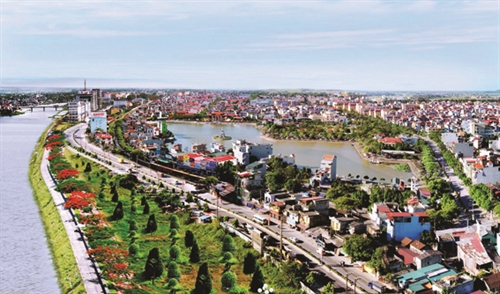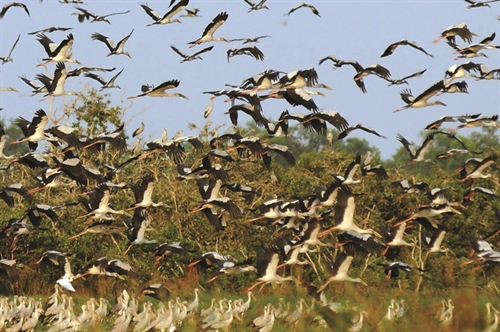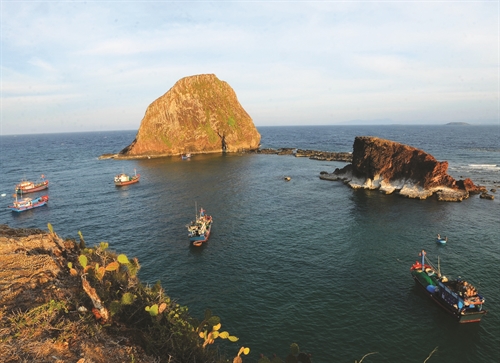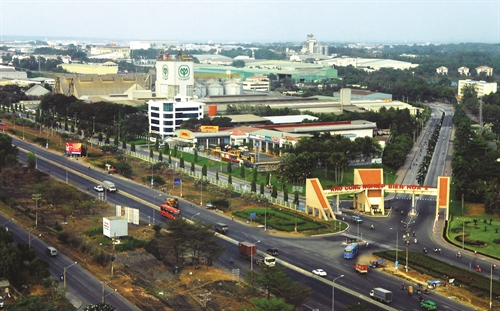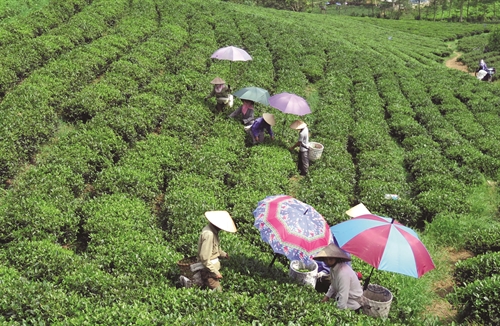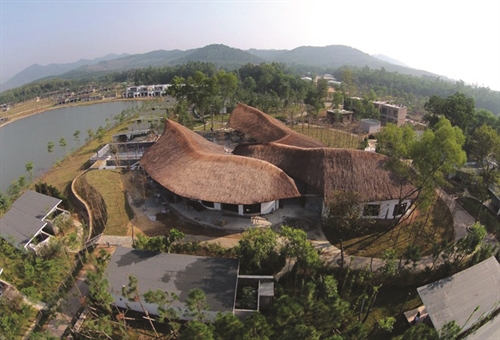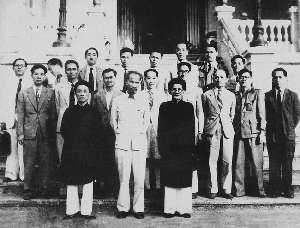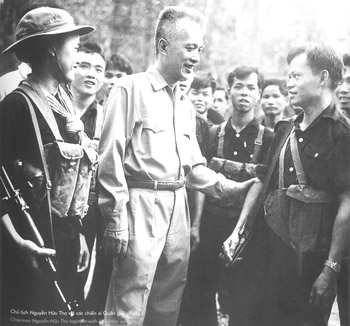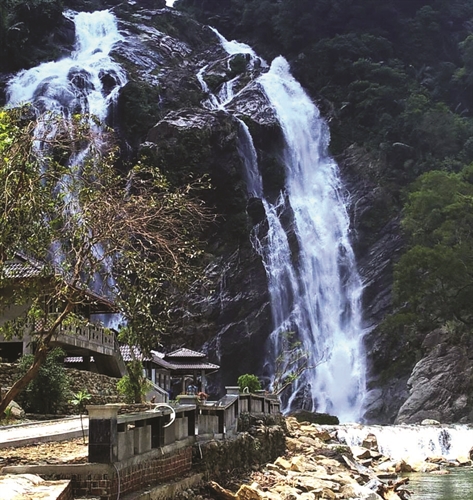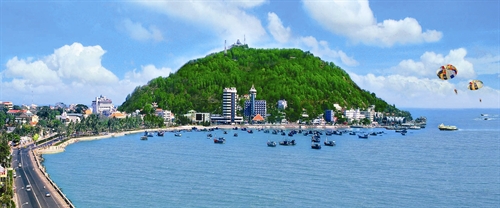Located 30 km to the northeast of Hanoi capital and some 50 kilometers from Noi Bai International Airport, Bac Ninh province borders Bac Giang province to the north, Hai Duong province to the east, Hung Yen province to the south and the capital city of Hanoi to the west. Covering 823 square kilometers, Bac Ninh is the smallest province in the country and has a population of 1,153,600 (according to 2015’s statistics). It has a provincial city with the same name, Tu Son town and seven districts (Yen Phong, Que Vo, Tien Du, Tu Son, Thuan Thanh, Luong Tai and Gia Binh). The province is situated in the Red River delta and the Hanoi - Hai Phong - Quang Ninh economic development triangle with convenient road, railway and waterway systems connecting it with the northern economic, trade and cultural centers. As the northeastern gateway to Hanoi capital, Bac Ninh not only plays an important role in national defense and security but also is a bridge linking Hanoi and the northern midland provinces.
Electronic and hi-tech industries for foreign direct investment (FDI) attraction
According to the Foreign Investment Agency of the Ministry of Planning and Investment, by January 20, 2017, Bac Ninh province ranked seventh in the country with 949 FDI projects worth USD 12.5 billion.
Last year, Bac Ninh ranked fifth in the country’s FDI attraction ranking and second in the Red River delta with 935 projects worth USD 12.3 billion, reported the provincial Party Committee. As its provincial competitiveness index (PCI) has entered the country’s top ten for several years and its public administration performance index (PAPI) now ranks second in the country, Bac Ninh is expected to become a centrally-run city by 2022.
Having been developed for the last two decades, 15 industrial parks (IPs) in the province attract investment from many transnational corporations, such as Pepsico and Microsoft (from the US), Samsung (the Republic of Korea), Canon (Japan), ABB (Sweden), and Foxconn (Taiwan).
At a ceremony to mark Bac Ninh’s 185th founding anniversary and 20 years of re-establishment on February 12, Prime Minister Nguyen Xuan Phuc expressed his hope for the future of Bac Ninh province as one of the richest localities with the highest per-capita income and an electronic and a high technology development symbol in the country.
His expectation was that Bac Ninh would strive to become a city of creativity and speedy and sustainable growth while preserving and promoting its cultural identities.
In addition to electronics and high technologies, the Government leader called on the province to focus on developing organic agriculture, step up the application of information technology in state management and pay greater attention to environmental protection.
On the same occasion, the Prime Minister visited the Samsung complex in Yen Phong IP where he highly appreciated the group’s founding of a mobile research and development center in order to transfer cutting-edge technology to Vietnam.
Vietnam in general and Bac Ninh province in particular would create a favorable environment for Samsung group to expand its business operation in the country, including ensuring political stability and sufficient labor resources, Phuc said.
Chairman of the Bac Ninh People’s Committee Nguyen Tu Quynh announced that the Government has allowed the Samsung Display Vietnam Co., Ltd., to increase its investment capital to USD 6.5 billion in Yen Phong IP.
Apart from the green light given to its investment expansion plan to make an additional investment of USD 2.5 billion in the country, the company would enjoy numerous investment incentives for large investment projects, said Quynh.
With a total FDI capital of USD 10 billion, the Republic of Korea (RoK) is leading a total of 30 countries and territories investing in the province.
On the first days of 2017, the Hanwha Techwin/Security Business Company of the RoK’s Hanwha Techwin became the first New Year hi-tech foreign investor in the province’s Que Vo IP. In the first quarter of this year, the company will build a plant manufacturing CCTV cameras and storage devices with a designed annual output of two million products in its first phase of operation that will last through 2019.
With the motto “investors’ success is the province’s success” and “the province always accompanies businesses”, apart from organizing business conferences or direct meetings between the provincial authorities and FDI enterprises, a business support team has been set up with provincial People’s Committee Chairman Quynh as the head in order to help fulfill investors’ requirements. The team will also provide answers to investors’ inquiries into the province’s corporate income tax, import duty and land lease policies as well as housing for workers, traffic in the IP and other social issues.
To attract investors to the province’s existing IPs, the provincial administration has offered them numerous incentives. Those investing in hi-tech, scientific research and technological development, the development of power plants and water supply and drainage systems and software production will be entitled to corporate income tax exemption for four years since generating taxable income and 50-percent tax reduction in the subsequent nine years. Investors will be entitled to import duty and value-added tax breaks for equipment, machinery and vehicles they manufacture in the province.
According to the provincial investment attraction scheme for 2013-2020 with a vision toward 2030, Bac Ninh prioritizes attracting investment in hi-tech and supporting industries, energy-saving and environment-friendly projects.
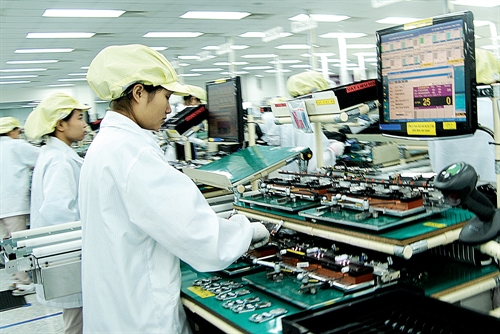 |
| Workers in Yen Phong industrial park, Bac Ninh province__Photo: VNA |
Hospitality potential
Known as Kinh Bac (north of the capital) region during Le Thanh Tong reign, the province was named as Bac Ninh province in 1831 under the Nguyen Dynasty. In 1962, it was merged with Bac Giang province to form Ha Bac province. On November 6, 1996, the IXth National Assembly approved the re-establishment of Bac Ninh and Bac Giang provinces. On January 1, 1997, Bac Ninh officially came into existence as a new administrative unit.
Bac Ninh is rich in culture and revolutionary tradition and well-known for a number of cultural and historical celebrities as well as folk art, particularly “quan ho” (love duets) singing that was recognized as a UNESCO Masterpiece of the Oral and Intangible Heritage of Humanity. It is also home to Lim, Ba Chua Kho and Do temple festivals and traditional craft villages such as Dong Ky wood carving village in Tu Son district, Phu Lang ceramic village in Que Vo district, Dai Bai bronze casting village in Gia Binh district and Vong Nguyet silk village in Yen Phong district.
In 2016, Bac Ninh province welcomed 847,000 tourists and earned a turnover of VND 589 billion.
The result was attributed to the provincial efforts to promote the image of its people and land in a series of cultural and tourism events.
The province has participated in the Ho Chi Minh City Tourism Day and the exhibition “The cultural imprints of the former imperial city of Hue and the Red River Delta via traditional craft products” and successfully organized the performance of “Quan Ho” singing at the 2016 Hue Festival. Also in 2016, Bac Ninh published more than 10,000 leaflets on the province’s tourism.
In order to exploit spiritual tours, the provincial administration has invested in building tourism infrastructure and zoned off four national relics, including Dau, But Thap and Phat Tich pagodas and the Ly Kings’ shrines and tombs and restored 49 other relics.
Vice Chairman of Bac Ninh People’s Committee Nguyen Van Phong said this year the province would complete a scientific dossier to be submitted to UNESCO, proposing Dong Ho folk paintings be placed on the list of intangible cultural heritage in need of urgent safeguarding.
Under the master plan on the province’s tourism development in the 2011-2020 period with a vision toward 2030, Bac Ninh is targeted to become one of the cultural and tourism centers in the Red River delta and the country to match with its potential and strengths.
Under the master plan, hospitality is expected to become an important economic sector contributing to the province’s socio-economic development and economic restructuring.
Vice Director of the Bac Ninh Culture, Sports and Tourism Department Le Dac Thuat said in the coming time the sector would advise the provincial leaders on tourism development policies.
The sector would prioritize the development of key tourist infrastructure and promote Bac Ninh’s tourism image apart from attaching importance to the preservation of cultural relics and natural landscapes as well as environmental protection.- (VLLF)
